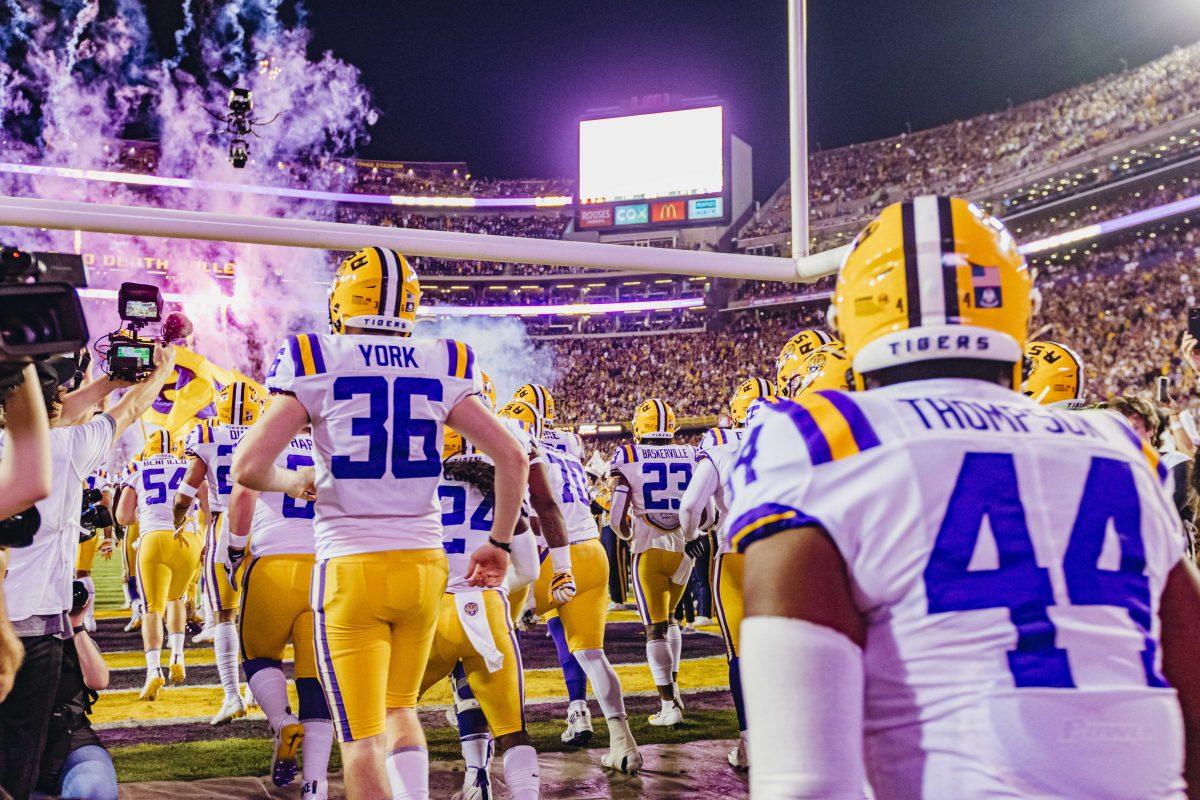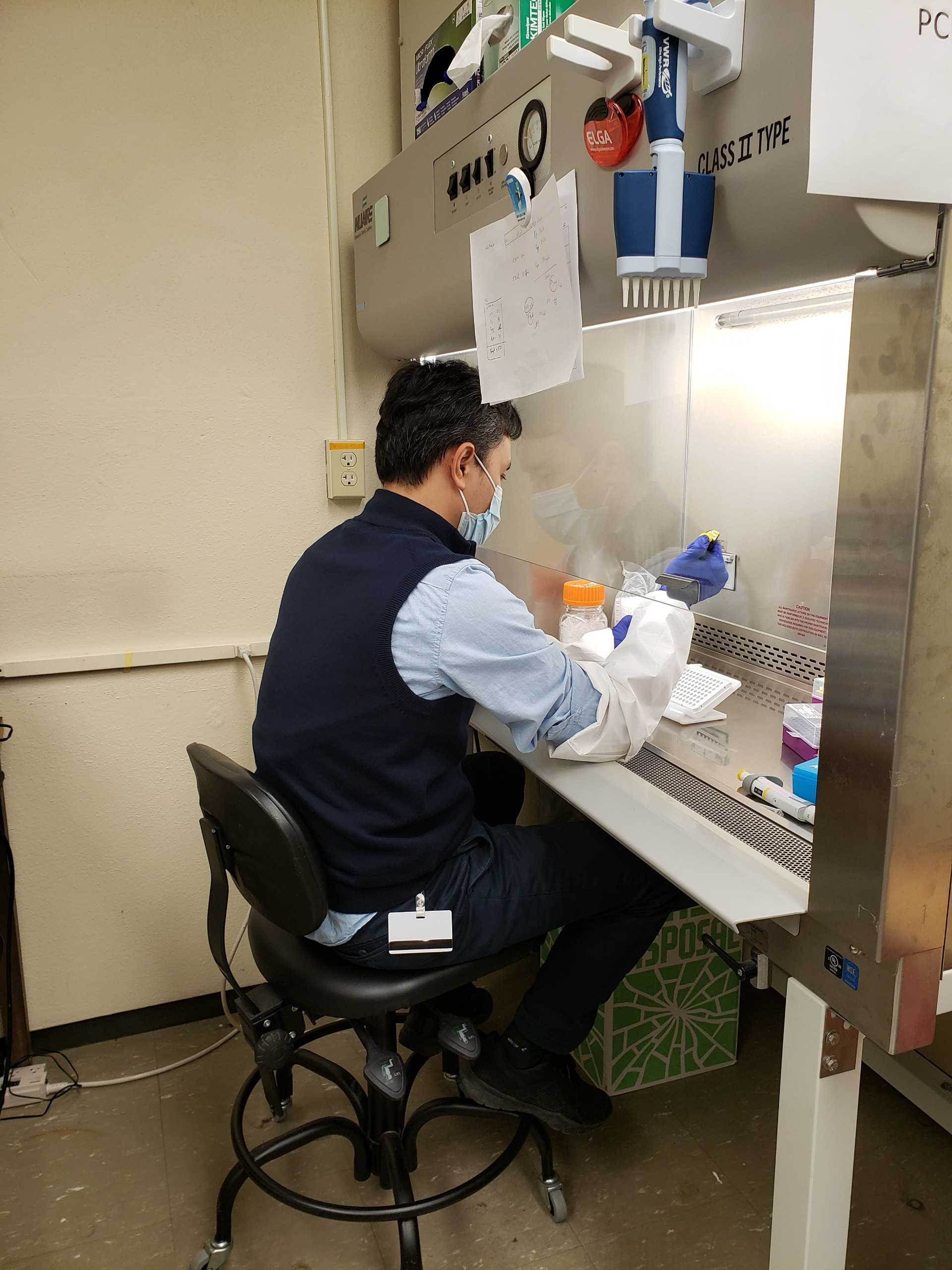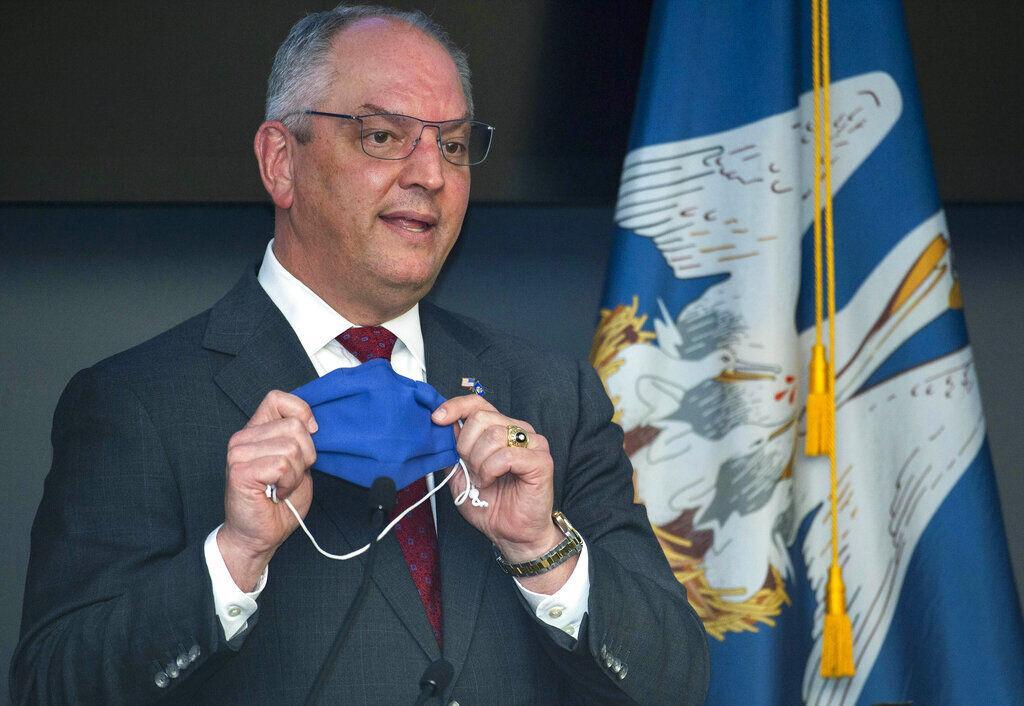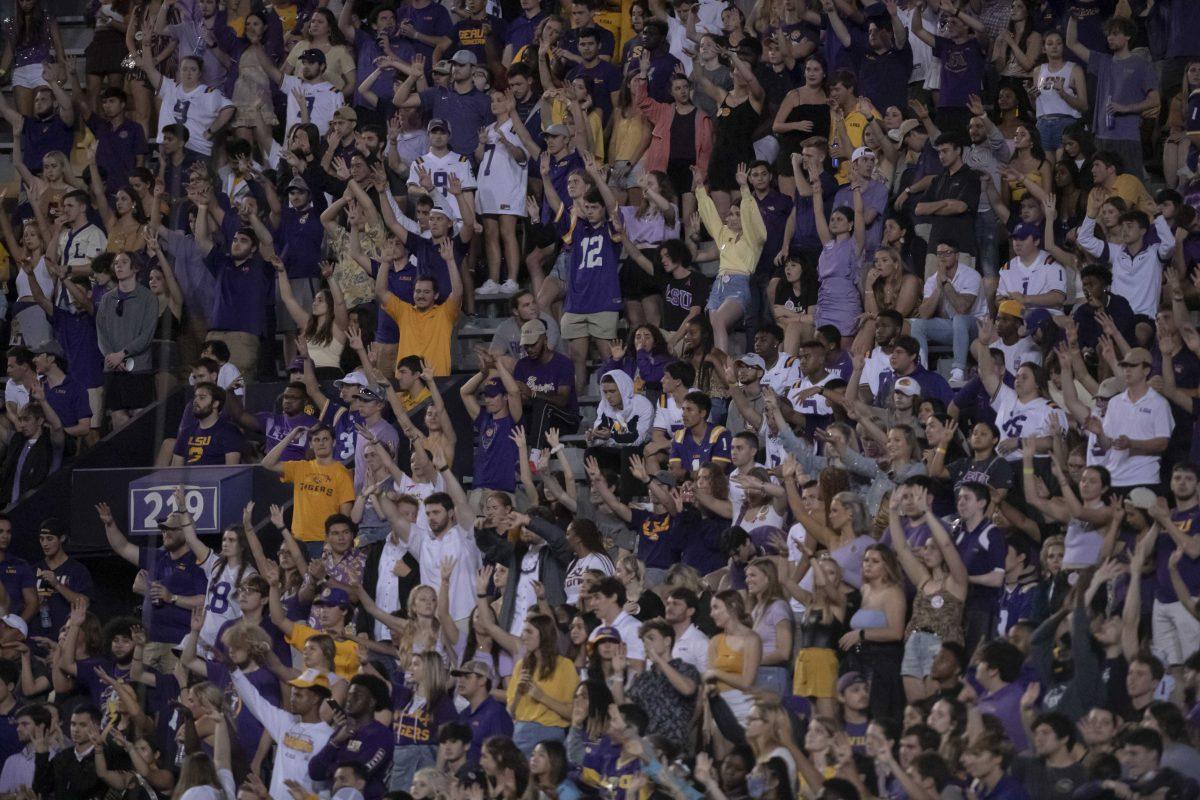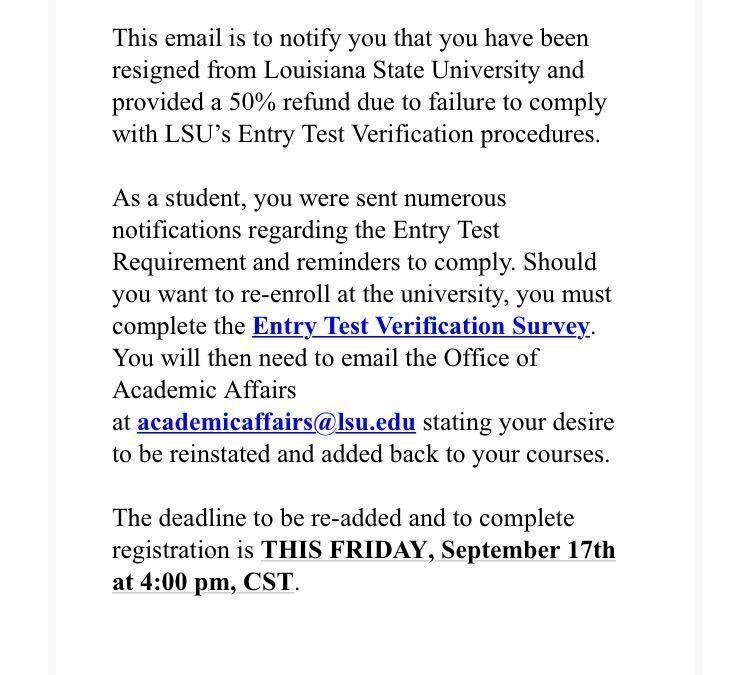In March, the pandemic was young, fears were mounting and Stephania Cormier was in trouble.
“We ran out of swabs,” Cormier said. “We couldn’t find any.”
Cormier is a respiratory immunologist and an LSU biological sciences professor. With her colleague Rebecca Christofferson, a virus expert, she set up the River Road Testing Lab at the LSU School of Veterinary Medicine, where the pair processed COVID-19 tests, relieving overburdened local hospitals and expediting turnaround times.
In March, they fought through 16 to 20-hour work days, quickly exhausting their supply of swabs needed for testing. The team needed an inexhaustible resource guaranteed to contain genetic material.
“That’s when we started playing around with saliva,” Cormier said.
They began work on the new test, and by June, were successfully finding patients who tested positive both with the traditional swab and their saliva test. Today, Cormier estimates that her team is one of five across the country to develop a saliva test that meets the accuracy of nasal swabs.
“They’re ready for use on campus,” she said. “Whenever campus tells us to go.”
While the rest of the world waits for developments in testing, the football world is looking for innovations. Shelly Mullenix, the LSU football trainer who’s leading the Tigers’ defense against the coronavirus, said the team yields test results in 24-48 hours. Cormier said her saliva test is highly accurate, with results appearing even faster.
“We can return results easily within six hours for about 380 samples,” Cormier said.
Mullenix said the Southeastern Conference recently updated its protocols, which now call for athletes in “high risk” sports to undergo three PCR tests each game week on Sunday, Tuesday and Thursday. The SEC previously planned to test its players on Fridays with an antigen test, a diagnostic test that is cheaper, faster, but significantly less accurate than the PCR.
Presumably, LSU football could begin to use Cormier’s saliva test. The SEC announced on Sept. 23 that it has partnered with PAE to provide COVID-19 testing at an independent lab for in-season sports this fall across all 14 campuses, which Mullenix said will help alleviate the strain that additional testing could put on a community.
Mullenix also said the team is not under contract to use only one medical center for testing and it has engaged a number of local facilities in search of suppliers.
A testing advancement lies right in the team’s backyard, whether the team will use it or not.
“Dr. Cormier’s test would be the way to go,” Ed Trapido, a professor of epidemiology at the LSU School of Public Health, said.
“If you can be tested daily,” he said, “and then, based on the results of the test, the individual isolates if they test positive, then yes, it could be contained. It’s not going to be easy, but it could be contained. The problem is that people aren’t going to be tested every day, and even the best of tests will miss some.”
The testing debate widened a rift among the Power-Five conferences, when the Pac-12 and Big 10 decided the only safe path forward was through daily testing. The Big 12, ACC and SEC disagreed, instead concluding that three tests per week will be sufficient. Those three conferences are forging ahead, while the Big 10 punted its season to late October.
“Well, I’m a college football fan,” said Frank Smart, chief cardiologist at the LSU School of Medicine. “And because of [the canceled seasons], I was disappointed. I certainly understand that these young people are volunteers and you can’t necessarily jeopardize their health.”
The Pac-12 cited three reasons for canceling its season: lack of adequate testing, community prevalence of the coronavirus and myocarditis.
Myocarditis is an inflammation of the heart muscle, often caused by a virus. A recovered patient’s immune response may mistake the heart for a virus protein, Smart explained, and begin attacking the vital organ. Myocarditis is treatable, but it can lead to long-term cardiac issues, and in the most severe cases, sudden death.
“We’re ready,” Catherine O’Neal, SEC medical adviser, told The Athletic in August. “We’re prepared to look for myocarditis and feel comfortable in the knowledge of what happens to somebody who does get it and what we need to do. There is some really good evidence in sports medicine behind how to recover from myocarditis as an athlete. Our plans reflect that.”
SEC athletes are required to undergo cardiac screening before they take the field. Players who test positive for COVID-19, Mullenix said, will receive additional, extensive cardiac testing. Once cleared, the players complete daily check-ins with their medical team and eight weekly evaluations to catch any abnormal cardiac symptoms.
Smart struggles to estimate a rate at which myocarditis develops from COVID-19. He and Trapido both agree that the rate is likely very low, but they each acknowledged many unknowns.
“We can’t even tell you how many people have the coronavirus,” Smart said.
“Right now, we consider it to be a relatively low risk for myocarditis,” Trapido said. “But the bottom line is, nobody knows the answer. It’s too soon.”
“If you don’t understand something, and you don’t know the degree of transmission and how serious it is and what the long term effects are, is it okay to put somebody at risk?” Smart asked. “The answer is probably not.”
Smart believes the SEC, ACC and Big 12 are comfortable taking those risks. The medical community has made attempts to better understand the rates of myocarditis in recovered COVID-19 patients. A German study that found myocarditis in 60 out of 100 participants floated around a few months ago, but many experts, including Smart, refute its methodology.
The latest study, by Ohio State, surveyed 26 athletes who tested positive for COVID-19 and felt either mild or no symptoms. The research found myocarditis in four of the players.
“COVID-19–related myocardial injury in competitive athletes and sports participation remains unclear,” the study concluded.
In early September, Penn State’s director of athletic medicine made headlines when he said cardiac MRI scans revealed that approximately a third of Big Ten athletes who tested positive for COVID-19 appeared to have myocarditis. That statement prompted Smart to send a lengthy email.
“The bottom line is we, the medical community, don’t know what the incidence of myocarditis is in COVID-19 infections,” he wrote. “We also don’t know what the consequences of COVID-19 myocarditis are. We don’t know how long an infected person with myocarditis should be held out of athletic activity. Is it a day, a month or forever? We honestly have no clue.”
“That degree of uncertainty is unsettling to the general public who believe modern medicine has all the answers,” he continued. “The media and our politicians want to sum everything up into a sound bite. As it relates to COVID-19, such simplification is akin to summing up a Hemingway novel in three words.”
Later that day, Penn State walked back the claim, saying that the incidence of myocarditis was much lower. It was a perfect news cycle: the college football off-season in a nutshell, with its chaotic, disjointed series of statements, decisions and actions as the sport grappled with the many problems that a pandemic presents.
Smart reacted to the school’s retraction in another, much shorter email.
“I guess it supports my contention that we don’t have a clue.”
LSU football looks to University epidemiologists for guidance, innovation on COVID-19 testing
By Reed Darcey
September 24, 2020
LSU football players enter Tiger Stadium before the LSU vs. Texas A&M game on Saturday, November 30, 2019.
More to Discover


